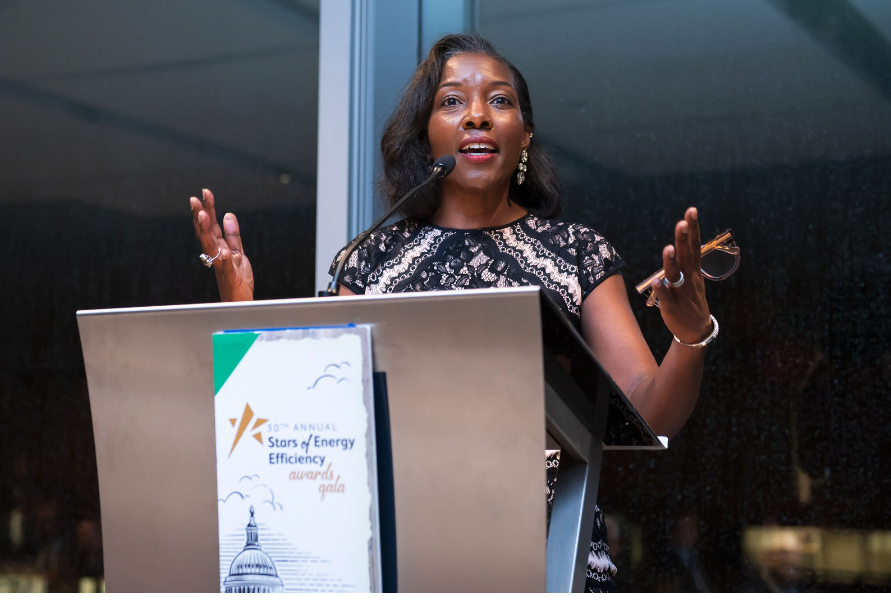Energy Efficiency, Electrification, and Decarbonization: More Than Just Buzzwords
Let's Save Energy
Alliance to Save Energy's Blog

Policy discussions related our nation’s complex energy landscape are ever evolving. Over the last several years, these conversations have coalesced around three key concepts: energy efficiency, electrification, and decarbonization.
However, these terms are often used interchangeably, leading to confusion about their distinct roles in achieving sustainability goals.
While they may overlap, treating them as synonymous can lead to policies that prioritize one outcome without fully considering others, as noted in a recent white paper Beyond the Buzzwords: Unpacking Energy Efficiency, Electrification and Decarbonization, from Alliance member American Gas Association (AGA).
The white paper decodes these three terms and clarifies their distinctions. The additional content below explores how a holistic approach can drive effective emissions reductions while maintaining reliability and affordability.
Defining the Buzzwords
-
Energy Efficiency
Energy efficiency refers to using less energy to perform the same task or achieve the same outcome. It is achieved through advanced technology, optimized processes, and behavioral changes. Energy efficiency programs are crucial for:
- Reducing energy consumption and costs
- Enhancing energy security and reliability
- Cutting emissions indirectly by lowering energy use
-
Decarbonization
Decarbonization is the process of reducing greenhouse gas emissions across sectors. It requires a mix of strategies, including energy efficiency, electrification, renewable energy integration, and the direct use of low-carbon fuels, the AGA report highlights.
-
Electrification
Electrification involves replacing direct fuel use with electricity. This applies to transportation, heating, and industrial processes. While electrification has the potential to reduce emissions, the AGA report notes that its effectiveness depends on the source of electricity generation and overall electric system energy efficiency as compared with the existing fossil fuel system. Policy-driven electrification may increase emissions rather than lower them if pushing for a grid which relies solely on electricity.
Why Energy Efficiency and Electrification ≠ Decarbonization
Let’s start with our first buzzword, energy efficiency.
Energy efficiency programs are designed as a set of initiatives and strategies that promote the efficient use of energy among residential, commercial, and industrial customers. These programs are organized around the primary goal of reducing energy use.
As a result of the energy saved, there can be many resulting benefits, including:
- Cost savings in the form of lower utility bills
- Enhanced customer comfort and safety
- Energy security and reliability
- Job creation and market growth
- Emission reductions
Moving onto our next buzzword, electrification.
While electrification can be part of decarbonization, it is not a guaranteed emissions-reduction strategy, AGA’s report cautions.
Consider the source: If an electric appliance replaces a fossil-fuel-based system but is less efficient than the fossil-fuel-based counterpart, emissions may increase.
Keep demand in mind: Some electric alternatives consume more total energy than their fossil-fuel counterparts. For example, electric resistance heating requires more energy than a high-efficiency gas furnace.
Infrastructure hurdles: Large-scale electrification requires costly grid upgrades and additional power generation, which may introduce new inefficiencies and emissions.
Clarity on Terms Enables “All the Above” Strategies for Sustainability
Now that we are clear on terms—where they overlap and where they don’t—what does this all mean?
It means an open dialogue encouraging an “all the above,” technology- and fuel-neutral approach to decarbonization, focusing on real emissions reductions instead of a one-size-fits-all electrification as a policy prescription approach.
For example: Contrary to the idea that natural gas must be entirely phased out because it’s a fossil fuel, the AGA whitepaper cites research showing that high-efficiency natural gas appliances often outperform electric alternatives in cost-effectiveness and emissions reduction, particularly in colder climates or regions with fossil-fuel-heavy grids.
The AGA whitepaper examines scenarios in which electrification does not yield comparable efficiency or environmental benefits, providing evidence-based insights that underscore using natural gas as a tool in the energy toolbox in specific applications.
Effective, holistic strategies include:
- Expanding Energy Efficiency Initiatives: Encouraging efficiency improvements across all fuels and sectors.
- Leveraging Natural Gas Innovations: Supporting high-efficiency gas appliances and renewable natural gas (RNG) technologies.
- Integrating Renewable Energy Thoughtfully: Balancing wind, solar, and other renewables with reliable backup solutions.
- Applying Full-Fuel-Cycle Metrics: Ensuring policies measure true energy and emissions impacts, not just on-site reductions.
Decarbonization requires a pragmatic, multi-faceted approach that considers energy efficiency, emissions reductions, and fuel sources equally. By embracing a balanced strategy, policymakers can develop affordable, cost-effective energy solutions that ensure a reliable, lower-carbon future.
For further reading:
- Click here to delve further into AGA’s report.
- Stay on top of the Alliance’s top policy actions by clicking here.
RECENT BLOG POSTS
STAY EMPOWERED
Help the Alliance advocate for policies to use energy more efficiently – supporting job creation, reduced emissions, and lower costs. Contact your member of Congress.
Energy efficiency is smart, nonpartisan, and practical. So are we. Our strength comes from an unparalleled group of Alliance Associates working collaboratively under the Alliance umbrella to pave the way for energy efficiency gains.
The power of efficiency is in your hands. Supporting the Alliance means supporting a vision for using energy more productively to achieve economic growth, a cleaner environment, and greater energy security, affordability, and reliability.



